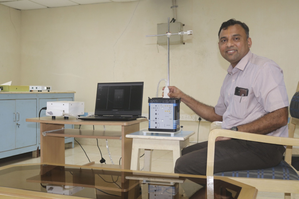Science Ministry grants herbal patents to 26 indigenous knowledge holders
New Delhi, Oct 28 : The Ministry of Science and Technology has facilitated 26 indigenous knowledge holders from Jammu and Kashmir and Gujarat with herbal patents, it said on Monday. “This will facilitate the scaling up of technologies for commercial and social ventures,” the ministry said.
The custodians of herbal traditional knowledge were granted herbal patents at felicitation programmes held earlier at the University of Kashmir and subsequently at the National Innovation Foundation, Gandhinagar on October 22. “Knowledge holders interact within their ecological system and possess a deep understanding of local flora accumulated through experiences, experiments, and wisdom.
These practices are tools for solving challenges in human health and agriculture including livestock at their locale,” the ministry said. “With rising concern on environmental hygiene and antimicrobial resistance, these sustainable practices are gaining importance. Such herbal medicines have to be recognised, scientifically valorised for integration in the health care system,” it added. To protect the indigenous knowledge system of the country, the Department of Science and Technology in 2000 set up the National Innovation Foundation-India (NIF). The NIF had incubated a large pool of outstanding traditional knowledge practices and protected this wisdom through Intellectual Property [IP] Rights.
Several of these technologies were IP protected to create opportunities in scaling up technologies for social benefit, the ministry said. Further, it stressed the need to protect these health traditions with scientific evidence to help “augment the link between informal and formal systems for larger social goals”. The scientifically proven herbal practices can pave the way for technology and industry partnerships, helping build indigenous cost-effective solutions for public health concerns. The ministry said that such initiatives are vital for India’s herbal heritage. It also emphasised the critical requirement for sustainable practices that can foster economic growth and community resilience.



